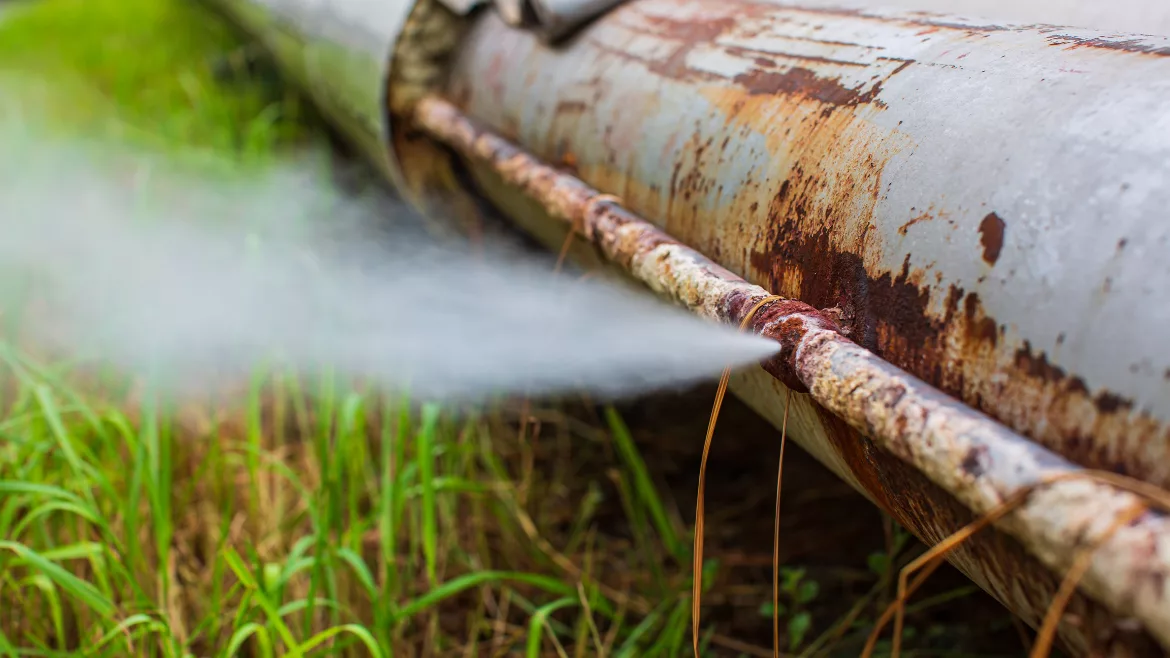News
Meeting Set on Pipeline Gas Leaks Proposed Rule
Feds have already met with environmental industry groups on the rule.

A public meeting to discuss a proposed rule on pipeline leak detection and repair has been scheduled for March 25-29, 2024 by the federal advisory panel that develops recommendations on standards for the transportation of gas by pipeline, but federal officials have already met industrial and environment groups, including a group that wants the rule to be expanded to monitor for gases currently not in the rule.
The Department of Transportation’s (DOT) Technical Pipeline Safety Standards Committee, also known as the Gas Pipeline Advisory Committee (GPAC), says it will discuss the proposed rule “Gas Pipeline Leak Detection and Repair” that was issued May 18, 2023. The proposed rule seeks to amend congressional mandates in the “Protecting Our Infrastructure of Pipelines and Enhancing Safety (PIPES) Act of 2020” (S. Rept. 116-217), according to GPAC.
While GPAC has scheduled the public meeting to discuss the proposed rule, the committee has already meet with a dozen groups on both sides of the issue, including Earthjustice, the Environmental Defense Fund (EDF), the American Gas Association (AGA), and the America Petroleum Institute (API).
According to a summary of GPAC’s meeting with Earthjustice, the environmental group said pipeline emissions and incidents are representative of environmental injustice as those pipelines are concentrated in low-income communities where the residents are primarily minorities.
Further, the EDF said their recommendations on the proposed rule are based on methane emissions’ research on gas collection, transmission and distribution systems. That research “suggests” that pipeline emissions in the Permian production basin (an oil-and-gas production area in west Texas and southern New Mexico) “are much higher than what would be estimated using EPA emissions factors.” Not surprising, both Earthjustice and the EDF support the proposed rule, but EDF urges that emissions from hydrogen pipelines be added to the regulation.
The representatives of industrial organizations were focused on methods to monitor pipelines for leaks, according to the Pipelines and Hazardous Materials Safety Administration (PHMSA), which published a summary of the meetings. The industry groups urged the PHMSA not to relay on “flow rate” alone when monitoring pipelines for leaks. However, industrial groups acknowledged that flow rate “was a preferred standard for right-of-way surveys on gas transmission and gathering lines.” Those groups said “concentration-based measures” including for mobile survey techniques and for continuous monitoring sensors, “are preferable for many distribution operators and should be retained as an option.”
The amendments to the PIPES Act sought by the proposed rule would increase pipeline safety and reduce methane emissions from new and existing gas transmission pipelines that are regulated gas gathering pipelines, underground natural gas storage facilities, and liquefied natural gas facilities, says GPAC.
Among the proposed amendments to the PIPES Act include strengthening requirement to survey and patrol pipes for leaks, including performance standards for advanced leak detection programs; impose leak grading and repair criteria with mandatory repair timelines; institute requirements for mitigation of emissions from “blowdowns” (a release of gas from a pipeline to relieve pressure in the pipe); establish pressure relief device design, configuration, and maintenance requirements; and clarify requirements for investigating failures, says GPAC.
Under the existing regulations, pipeline segments located in areas where the population density has significantly increased, the operators of that pipeline must perform one of the following actions: reduce the pressure of the pipeline segment; pressure test the pipeline segment to higher standards; or replace the pipeline segment..
GPAC is scheduled to meet from 8:30 a.m. to 5 p.m. on March 25-29, 2024, at the hotel the Westin Crystal City, 1800 Richmond Highway, Arlington, Va. Members of the public can attend, but must register on the meeting website and include their affiliations. In addition, there will a period in which attendees can make comments, but they might be limited to three minutes, according to the DOT.
In addition, GPAC says if discussions on the proposed rule “Gas Pipeline Leak Detection and Repair” are completed before the meeting is scheduled to end, the panel will proceed with discussion on another proposed rule—“Class Location Change Requirements”—that was issued October 14, 2020.
The proposed rule, “Class Location Change Requirements,” would add an alternative set of requirements operators could use, based on implementing integrity management principles and pipe eligibility criteria, to manage certain pipeline segments where the class location has changed. It is believed that through required periodic assessments, repair criteria, and other extra preventive measures, the actions required under the proposed rule would provide long-term safety benefits consistent with current natural gas pipeline safety rules while also providing cost savings for pipeline operators, according the DOT.
To register to attend the GPAC meeting click here.
Looking for a reprint of this article?
From high-res PDFs to custom plaques, order your copy today!



.webp?height=200&t=1738010474&width=200)

